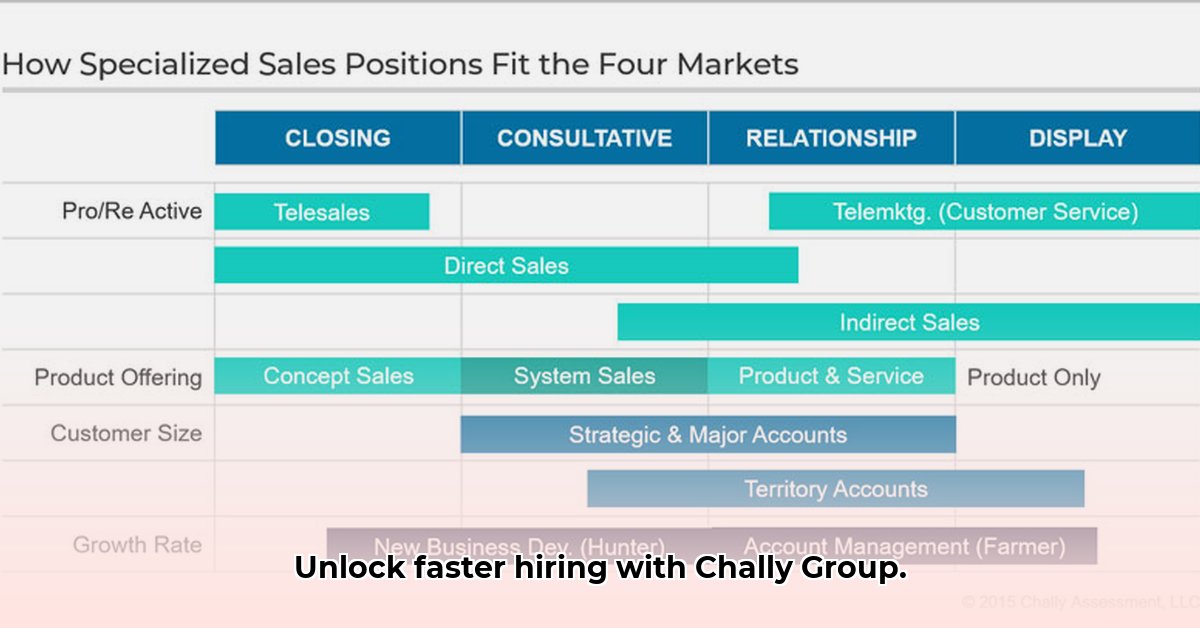
Finding the right people for your team shouldn't feel like searching for a mythical unicorn. The time-consuming, costly, and frankly, stressful process of hiring can be significantly improved with the right tools. The Chally Group assessment platform promises exactly that: a faster, more accurate way to find top talent. This article will explore Chally's capabilities, benefits, and potential caveats, offering actionable insights for HR professionals, hiring managers, and executive leadership. We'll delve into real-world examples and provide a step-by-step guide to maximize the platform's potential while mitigating potential risks.
Understanding the Chally Group Assessment Platform: More Than Just a Test
The Chally Group assessment isn't your average personality test. It's a sophisticated system built on extensive research and validated through numerous studies, designed to predict a candidate's on-the-job performance. Unlike generic personality assessments, Chally focuses on specific skills and behavioral traits – competencies – crucial for success in a given role. With a vast library of pre-built profiles and the ability to customize, it offers a granular level of analysis.
Data-Driven Insights: Forget gut feelings; Chally provides data-backed insights to inform confident hiring decisions. How much time are you currently spending on unsuccessful candidates?
Predictive Power: The platform consistently demonstrates an ability to accurately predict job performance, leading to fewer costly hiring mistakes. This translates to significant ROI. What's the cost of a bad hire in your organization?
How the Chally Group Assessment Works: Uncovering Hidden Potential
The process begins with defining the specific competencies required for a role. This detailed job profile serves as the benchmark against which candidate responses are compared. Potential hires complete the assessment; Chally's algorithms then analyze their responses, generating a comprehensive report outlining their strengths and weaknesses in relation to the predefined competencies. This targeted analysis goes beyond general personality assessments, focusing on those specific traits directly related to job success.
Targeted Analysis: Chally’s report doesn't just offer generalized observations. It identifies specific strengths and weaknesses relevant to the target role.
Efficiency: Chally helps you focus on the candidates most likely to succeed, significantly streamlining the interview process. How many hours are wasted interviewing unsuitable candidates?
The Advantages: A Smarter, Faster Hiring Process
The Chally Group assessment offers several key advantages:
Improved Accuracy: The platform's predictive power leads to fewer bad hires, ultimately boosting team effectiveness.
Increased Speed: By focusing on highly-qualified candidates, you significantly reduce time-to-hire. How long does your current hiring process take?
Data-Driven Decision-Making: The detailed reports eliminate guesswork, providing objective data to support hiring decisions. Are your current decisions equally data-driven?
Cost Savings: The initial investment is quickly offset by reduced turnover and increased productivity, resulting in significant long-term cost savings.
Potential Challenges: What to Consider Before Implementation
While Chally offers numerous benefits, potential drawbacks warrant consideration:
Limited Profile Coverage: The platform's extensive competency library may not perfectly encompass every niche role. Ensure the existing profiles adequately reflect the requirements of your open positions.
Transparency and Bias: The proprietary nature of Chally's algorithms might raise concerns about potential biases. Open communication with Chally representatives is crucial to address these concerns.
Cost and Implementation: Budget for both the platform's cost and the time required for training and integration.
Implementing the Chally Group Assessment: A Step-by-Step Guide
Successful implementation of the Chally Group assessment requires a strategic approach:
Needs Assessment: Identify roles where improvements to your hiring process would yield the greatest impact.
Pilot Program: Test the platform on a smaller scale before full-scale deployment.
System Integration: Ensure seamless integration with your existing Applicant Tracking System (ATS).
Comprehensive Training: Thoroughly train your HR staff and hiring managers.
Ongoing Monitoring: Track key performance indicators (KPIs) to measure ROI and continuously refine your hiring strategy.
Mitigating Bias in Chally Talent Assessment: Ensuring Fairness and Equity
Bias can inadvertently influence any hiring process. To ensure fairness and equity when using Chally, several key steps are essential:
Data Audit: Thoroughly review the data used to train Chally's algorithms, looking for potential biases based on protected characteristics.
Algorithmic Transparency: While full disclosure of the algorithms might not be possible, understand the key metrics and weighting to identify potential biases.
Regular Calibration: Compare Chally's results against actual employee performance data to highlight any discrepancies.
Diverse Data: Ensure the data used for training is diverse and representative of your desired workforce.
Human Oversight: Supplement Chally's data with human review to ensure a holistic assessment of candidates.
Blind Review: When feasible, utilize blind review processes to minimize unconscious bias.
Regular Updates: Keep Chally's algorithms updated with current data to maintain accuracy and fairness.
Conclusion: Is Chally Group Assessment Right for You?
The Chally Group assessment represents a significant advancement in talent acquisition, offering the potential for substantial improvements in accuracy, speed, and cost-effectiveness. However, a comprehensive assessment of its capabilities, costs, and potential limitations is crucial. Carefully consider your specific needs and weigh the pros and cons before making a decision. Investing in the right tools can be the key to building a more successful and effective organization.